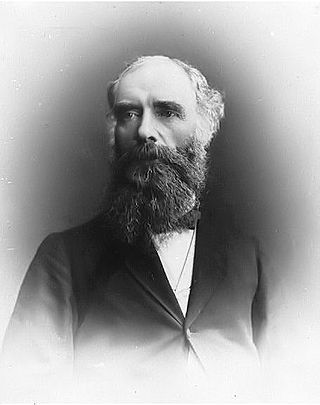
Gulf Oil was a major global oil company in operation from 1901 to 1985. The eighth-largest American manufacturing company in 1941 and the ninth largest in 1979, Gulf Oil was one of the Seven Sisters oil companies. Prior to its merger with Standard Oil of California, Gulf was one of the chief instruments of the Mellon family fortune; both Gulf and Mellon Financial had their headquarters in Pittsburgh, Pennsylvania, with Gulf's headquarters, the Gulf Tower, being Pittsburgh's tallest building until the completion of the U.S. Steel Tower.

Esso is a trading name for ExxonMobil. Originally, the name was primarily used by its predecessor Standard Oil of New Jersey after the breakup of the original Standard Oil company in 1911. The company adopted the name "Esso", to which the other Standard Oil companies would later object.

A multi-national corporation is a corporate organization that owns and controls the production of goods or services in at least one country other than its home country. Control is considered an important aspect of an MNC to distinguish it from international portfolio investment organizations, such as some international mutual funds that invest in corporations abroad solely to diversify financial risks. Black's Law Dictionary suggests that a company or group should be considered a multi-national corporation "if it derives 25% or more of its revenue from out-of-home-country operations".

Brompton Cemetery is since 1852 the first London cemetery to be Crown property, managed by The Royal Parks, in West Brompton in the Royal Borough of Kensington and Chelsea. It is one of the Magnificent Seven cemeteries. Established by Act of Parliament and laid out in 1839, it opened in 1840. Consecrated by Charles James Blomfield, Bishop of London, in June 1840, it is one of Britain's oldest and most distinguished garden cemeteries. Some 35,000 monuments, from simple headstones to substantial mausolea, mark more than 205,000 resting places. The site includes large plots for family mausolea, and common graves where coffins are piled deep into the earth. It also has a small columbarium, and a secluded Garden of Remembrance at the northern end for cremated remains. The cemetery continues to be open for burials. It is also known as an urban haven for nature. In 2014, it was awarded a National Lottery grant to carry out essential restoration and develop a visitor centre, among other improvements. The restoration work was completed in 2018.

The Anglo-Persian Oil Company was a British company founded in 1909 following the discovery of a large oil field in Masjed Soleiman, Persia (Iran). The British government purchased 51% of the company in 1914, gaining a controlling number of shares, effectively nationalizing the company. It was the first company to extract petroleum from Iran. In 1935 APOC was renamed the Anglo-Iranian Oil Company (AIOC) when Reza Shah formally asked foreign countries to refer to Persia by its endonym Iran.

Vagit Yusufovich Alekperov is an Azerbaijani oligarch. He was the President of the oil company Lukoil from 1993 until 2022. As of September 2024, according to Forbes billionaires list by Forbes magazine, Alekperov has an estimated net worth of US$27.6 billion, making him the 3rd wealthiest person in Russia and the fifty-ninth in the world. Alekperov previously owned a 36.8% stake in football club Spartak Moscow. Fellow former Spartak owner Leonid Fedun is Alekperov's close associate. Alekperov also owned superyacht builder Heesen Yachts until 2022.

The petroleum industry, also known as the oil industry, includes the global processes of exploration, extraction, refining, transportation, and marketing of petroleum products. The largest volume products of the industry are fuel oil and gasoline (petrol). Petroleum is also the raw material for many chemical products, including pharmaceuticals, solvents, fertilizers, pesticides, synthetic fragrances, and plastics. The industry is usually divided into three major components: upstream, midstream, and downstream. Upstream regards exploration and extraction of crude oil, midstream encompasses transportation and storage of crude, and downstream concerns refining crude oil into various end products.

Donald Alexander Smith, 1st Baron Strathcona and Mount Royal,, known as Sir Donald A. Smith between May 1886 and August 1897, was a Scottish-born Canadian businessman who became one of the British Empire's foremost builders and philanthropists. He became commissioner, governor and principal shareholder of the Hudson's Bay Company. He was president of the Bank of Montreal and with his first cousin, George Stephen, co-founded the Canadian Pacific Railway. He was elected to the Legislative Assembly of Manitoba and afterwards represented Montreal in the House of Commons of Canada. He was Canadian High Commissioner to the United Kingdom from 1896 to 1914. He was chairman of Burmah Oil and the Anglo-Persian Oil Company. He was chancellor of McGill University (1889–1914) and the University of Aberdeen.

BP Canada was a Canadian petroleum company and subsidiary of British Petroleum that existed between 1955 and 1992. The name refers to a group of companies that engaged in various segments of the petroleum industry lifecycle. BP entered the Canadian market in October 1953, when it purchased a 23 percent stake in the Triad Oil Company. In 1955, BP formed a Canadian subsidiary, based in Montreal, called BP Canada Limited. The company began acquiring retail stations in Ontario and Quebec and in 1957 started construction on a refinery in Montreal. By the end of the 1950s BP Canada was a fully-integrated operation. In 1964, it acquired from Cities Service the Oakville Refinery, and then expanded its operations significantly in 1971 when it acquired Supertest Petroleum.

James Oscar McKinsey was an American accountant, management consultant, professor of accounting at the University of Chicago, and founder of McKinsey & Company.
The American Petroleum Institute (API) is the largest U.S. trade association for the oil and natural gas industry. It claims to represent nearly 600 corporations involved in production, refinement, distribution, and many other aspects of the petroleum industry.
Talisman Energy Inc. was a Canadian independent petroleum company that existed between 1993 and 2015. The company was created from the assets of BP Canada after British Petroleum divested its 57 percent stake in June 1992. It was one of Canada's largest independent oil and gas companies, and operated globally, with operations in Canada and the United States of America in North America; Colombia, South America; Algeria in North Africa; United Kingdom and Norway in Europe; Indonesia, Malaysia, Vietnam, Papua New Guinea, East Timor and Australia in the Far East; and Kurdistan in the Middle East. Talisman Energy has also built the offshore Beatrice Wind Farm in the North Sea off the coast of Scotland.

John Dustin Archbold was an American businessman and one of the United States' earliest oil refiners. His small oil company was bought out by John D. Rockefeller's Standard Oil Company. Archbold rose rapidly at Standard Oil, handling many of the complex secret negotiations over the years. By 1882, he was Rockefeller's closest associate, and typically acted as the company's primary spokesman. Rockefeller, after 1896, left business matters to Archbold while he pursued his philanthropy; as vice president, Archbold effectively ran Standard Oil until his death in 1916. Inspired by Rockefeller's policies, Archbold's main goals were stabilization, efficiency, and minimizing waste in refining and distributing petroleum products. When the company was broken up by the Supreme Court in 1911 into 34 smaller operations, Archbold became president of the largest one, Standard Oil of New Jersey.

Big Oil is a name sometimes used to describe the world's six or seven largest publicly traded and investor-owned oil and gas companies, also known as supermajors. The term, particularly in the United States, emphasizes their economic power and influence on politics. Big Oil is often associated with the fossil fuels lobby and also used to refer to the industry as a whole in a pejorative or derogatory manner.

Algur Hurtle Meadows was an American oil tycoon, art collector, and benefactor of Southern Methodist University and other institutions.
Sir Angus McFarlane McLeod Grossart was a Scottish businessman who was the founder, chairman and executive director of Edinburgh-based merchant bank Noble Grossart.

While the local use of oil goes back many centuries, the modern petroleum industry along with its outputs and modern applications are of a recent origin. Petroleum's status as a key component of politics, society, and technology has its roots in the coal and kerosene industry of the late nineteenth century. One of the earliest instances of this is the refining of paraffin from crude oil. Abraham Gesner developed a process to refine a liquid fuel from coal, bitumen and oil shale; it burned more cleanly and was cheaper than whale oil. James Young in 1847 noticed a natural petroleum seepage when he distilled a light thin oil suitable for use as lamp oil, at the same time obtaining a thicker oil suitable for lubricating machinery. The world's first refineries and modern oil wells were established in the mid-nineteenth century. While petroleum industries developed in several countries during the nineteenth century, the two giants were the United States and the Russian Empire, specifically that part of it that today forms the territory of independent Azerbaijan. Together, these two countries produced 97% of the world's oil over the course of the nineteenth century.

BP p.l.c. is a British multinational oil and gas company headquartered in London, England. It is one of the oil and gas "supermajors" and one of the world's largest companies measured by revenues and profits. It is a vertically integrated company operating in all areas of the oil and gas industry, including exploration and extraction, refining, distribution and marketing, power generation, and trading.

Wallace Trevor Holliday was president of Standard Oil of Ohio, John D. Rockefeller's' first oil company, from 1928 to 1949 and chairman of the board from 1949 until his death on November 7, 1950.

Alexander McDonald, M'Donald or MacDonald was a Scottish sculptor specialising in granite. He was also an expert on Egyptian granite sculpture.




















